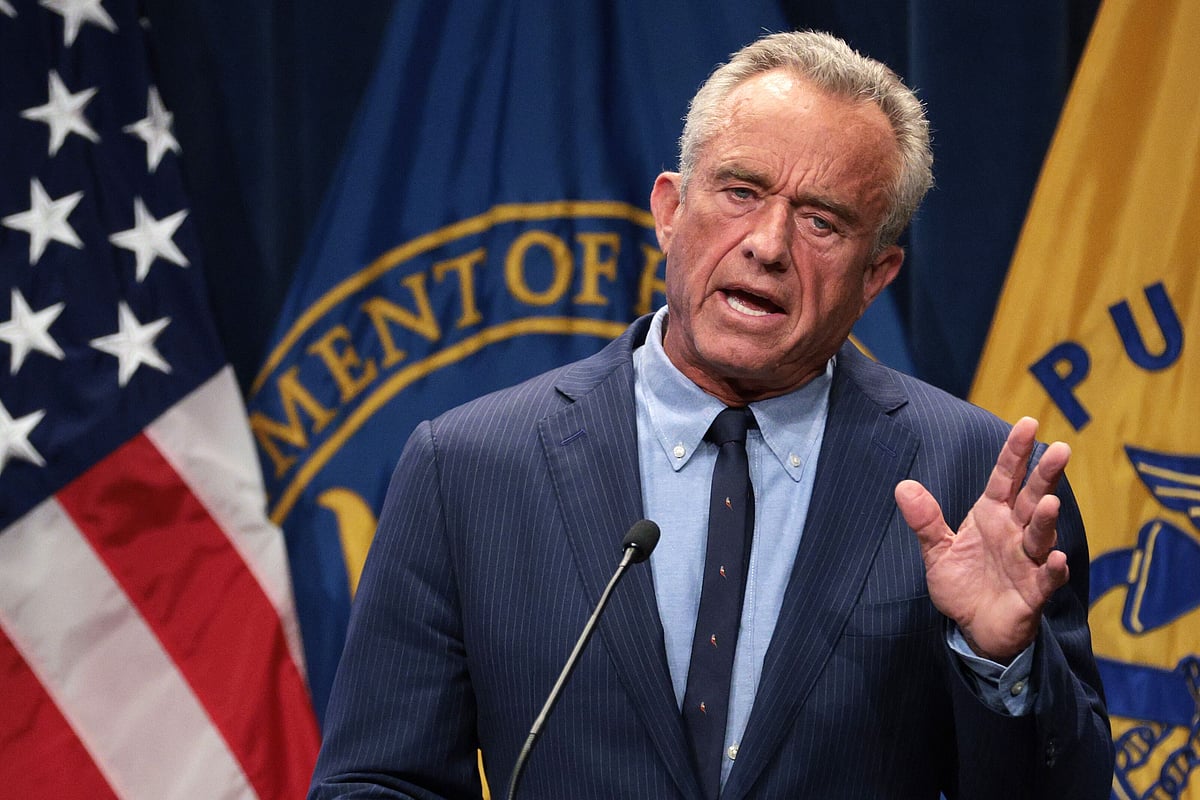Kennedy’s Claims on Circumcision and Autism Face Backlash
Recent discussions surrounding autism have gained attention due to claims made by Robert F. Kennedy Jr., the U.S. Health Secretary. He has suggested a connection between circumcision and an increased risk of autism, a statement that has prompted significant backlash from medical experts and researchers.
Claims and Counterarguments
During a recent Cabinet meeting, Kennedy asserted that two studies indicate circumcised children have double the rate of autism. He further speculated that this correlation might be linked to the administration of Tylenol to infants post-circumcision. However, experts in the field have quickly challenged these assertions. Helen Tager-Flusberg, a professor at Boston University and an authority on autism, emphasized that existing studies do not support a causal relationship between Tylenol use in infants and autism risk, especially when controlling for various confounding factors.
Medical Guidance on Pain Relief
Contrary to Kennedy’s claims, medical associations recommend that pregnant women can take acetaminophen, the active ingredient in Tylenol, in moderation when necessary. While some studies have hinted at a potential association between acetaminophen use during pregnancy and autism, no definitive causal link has been established. A comprehensive analysis published in JAMA last year, which utilized sibling controls, found no evidence to support this theory.
Flaws in the Circumcision Study
The primary study cited by Kennedy, conducted by Danish researchers in 2015, has been criticized for its methodological flaws. David Mandell, a psychiatrist at the University of Pennsylvania, pointed out that the study’s sample size was limited to Muslim boys circumcised in hospitals, rather than reflecting the broader population where circumcision is often performed at home. This specific demographic may have included children with pre-existing medical conditions, potentially skewing the results and leading to misleading conclusions about neurodevelopmental disorders.
Lack of Evidence for Psychological Effects
Further reviews of the literature on circumcision have consistently found no significant association between the procedure and adverse psychological outcomes. Mandell noted that a more recent examination of studies in this area supports the conclusion that circumcision does not contribute to negative psychological effects.
Kennedy’s Focus on Autism Research
Kennedy, who has a history of promoting vaccine misinformation, has made it a priority to investigate the potential causes of autism while simultaneously reducing funding for other research areas. He has enlisted the help of David Geier, a controversial figure previously disciplined for unethical medical practices, to explore alleged links between vaccines and autism, a connection that has been thoroughly debunked by numerous studies.
FAQs
What did Robert F. Kennedy Jr. claim about circumcision and autism?
Kennedy claimed that circumcised children have a higher rate of autism, suggesting a link to Tylenol use after the procedure, but this assertion lacks scientific support.
Are there any proven links between Tylenol use during pregnancy and autism?
No causal relationship has been established between Tylenol use during pregnancy and autism, according to multiple studies, including a significant analysis published in JAMA.
What do experts say about the circumcision-autism theory?
Experts, including psychiatrists and autism researchers, have criticized the studies supporting this theory for their methodological flaws and have found no evidence linking circumcision to adverse psychological effects.
Conclusion
The claims linking circumcision to autism have sparked considerable debate, with experts firmly refuting the assertions made by Kennedy. As research continues, it is essential to rely on scientifically validated information to guide discussions around autism and its potential causes. Moving forward, a focus on rigorous research and evidence-based practices will be crucial in addressing these complex issues.
The controversy surrounding Kennedy’s claims highlights the ongoing challenges in public health communication, particularly regarding sensitive topics like autism and circumcision. Misinformation can easily spread, leading to public confusion and fear, which may impact parental decisions regarding medical procedures and treatments. Experts emphasize the importance of clear, accurate information to help families make informed choices based on scientific evidence rather than anecdotal claims.
In the broader context, the debate over circumcision continues to evoke strong opinions, with advocates citing potential health benefits while opponents raise ethical concerns. As discussions evolve, it remains critical for healthcare professionals to provide balanced perspectives, ensuring that parents have access to comprehensive information that reflects the current understanding of both circumcision and autism. This approach can help mitigate the influence of unfounded claims and promote informed decision-making in healthcare.
Also Read:
Mother in New Zealand ‘Suitcase Murders’ Found Guilty of Killing Her Children
UAE Extradites Two Fraud Suspects to Nepal and Uzbekistan Under Justice Ministry Order
UAE Traffic Update: Heavy Delays on Key Dubai Routes Including E11 and E311







